Introdução
In recent years, the world has seen a shift towards sustainable energy sources as a means of combating climate change and reducing our dependence on fossil fuels. One such alternative is biomass boilers, which offer a clean, renewable and cost-effective way of generating heat and electricity. Neste artigo, we will explore the concept of biomass boilers and examine their advantages, disadvantages, and applications.
What is a Biomass Boiler?
UMA biomass boiler is a heating system that burns organic materials, tal como pellets de madeira, chips or logs, to generate heat and hot water. This heat is then used to power central heating systems, caldeiras, e hot water systems for homes, empresas, and industrial facilities. The organic materials used as fuel for these boilers are considered renewable because they are grown and replenished at a rate that matches or exceeds the rate at which they are consumed.
Obtenha um preço fixo online em 20 segundos:
Advantages of Biomass Boilers
- Renewable Energy Source: It is a renewable energy source, which means their fuel supply is replenished naturally, unlike fossil fuels which are limited and rapidly depleted.
- Lower Carbon Emissions: Biomass boilers emit fewer greenhouse gases than traditional boilers and heating systems that run on fossil fuels. This makes them a more environmentally friendly option.
- Cost-effective: It can be cost-effective, especially when the cost of fuel is considered. The cost of lascas de madeira, pellets, and logs is often lower than the cost of heating oil or gás natural, making biomass boilers a more affordable option for many consumers.
- Versatility: Biomass boilers can be used for a variety of applications, including central heating, hot water systems, and power generation.
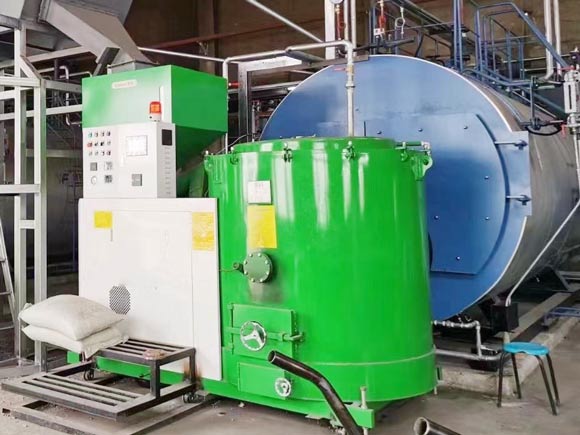
Disadvantages of Biomass Boilers
- High Initial Investment: Installing a biomass boiler can be expensive, with costs ranging from several thousand to tens of thousands of dollars. This makes them a less accessible option for some consumers.
- Manutenção: Biomass boilers require regular maintenance to ensure that they run efficiently and safely. This can add to the overall cost of ownership and may require specialized skills to perform.
- Fuel Supply: Biomass boilers rely on a continuous supply of fuel, which can be difficult to obtain in some areas. Além disso, the quality of the fuel can vary, which can impact the efficiency and performance of the boiler.
- Space Requirements: It are typically larger than traditional boilers and require a substantial amount of space for fuel storage.
Precisa de uma nova caldeira?
Applications of Biomass Boilers
- Residential: Can be used in homes for central heating and hot water systems. This provides a sustainable and cost-effective alternative to traditional heating systems.
- Commercial: Can be used in commercial buildings, such as office buildings, hotéis, and schools, to provide heating and hot water. They are also becoming increasingly popular in larger industrial facilities, such as factories and warehouses.
- Geração de energia: Can also be used to generate electricity. This is achieved by burning the organic materials in a high-pressure steam generator, which produces steam that is then used to drive a turbine and generate electricity.
Types of Biomass Boilers:
Log Boilers: Log boilers are a traditional type of biomass heating boiler that use logs as the fuel source. They are ideal for homes with plenty of wood available for fuel and are often used in rural or remote areas.
Pellet Boilers: caldeiras de pellets are a popular type of biomass heating boiler that use wood pellets as the fuel source. They are automated, which makes them easier to use, and they are suitable for homes and businesses with a high demand for heat.
Chip Boilers: Chip boilers are a type of biomass heating boiler that use wood chips as the fuel source. They are often used in larger buildings and industrial applications, as they have a high heating capacity.
Receba orçamentos de caldeiras GRATUITOS
Obtenha cotações de caldeiras locais GRATUITAS hoje
Compare os melhores preços
Economize dinheiro em sua nova caldeira hoje!
quanto custa uma caldeira de biomassa?
The cost of a biomass boiler can vary widely, depending on several factors, such as the size of the system, the type of fuel being burned, and the specific brand and model. Geralmente, prices for a biomass boiler can range anywhere from $15,000 para $50,000 ou mais.
It’s important to keep in mind that the cost of a biomass boiler is just one part of the overall cost of a biomass heating system. You also need to consider the cost of fuel, installation, maintenance, and operation. Adicionalmente, some states offer incentives and rebates to help offset the cost of installing a biomass heating system.
If you’re interested in a biomass boiler, it’s a good idea to get quotes from several different providers to get a sense of the overall cost and to compare different options. A professional heating contractor can help you evaluate your needs and determine the most cost-effective solution for your home or business.
Conclusão
Para concluir, biomass boilers are a clean, renewable and cost-effective way of generating heat and electricity. They offer several advantages, including lower carbon emissions and a renewable energy source, while also being versatile and adaptable to a range of applications.

Procurando caldeiras com fabricação sofisticada, otima qualidade?
A caldeira Fangkuai sempre pode fornecer o que você deseja.
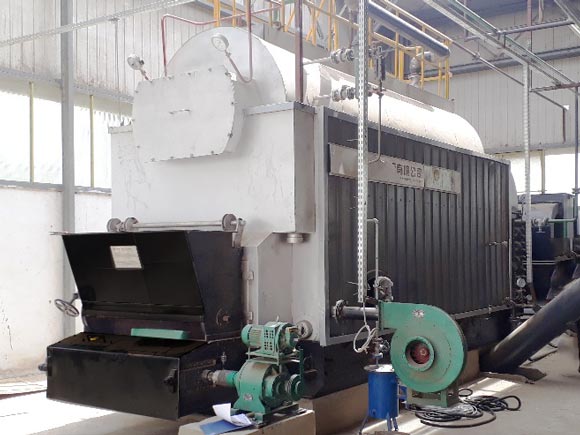
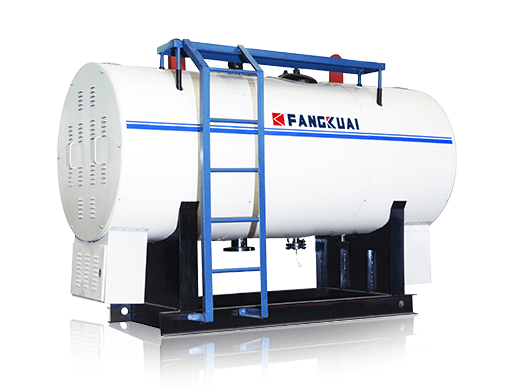 Caldeira elétrica de água quente
Caldeira elétrica de água quente 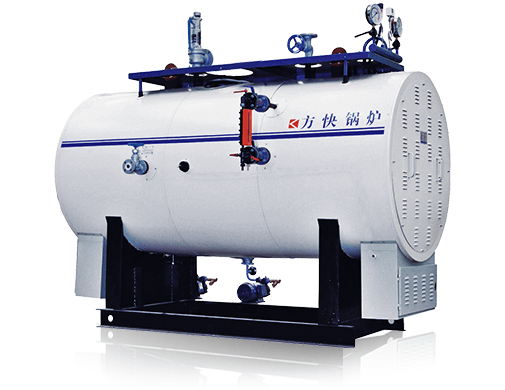 Caldeira elétrica a vapor
Caldeira elétrica a vapor 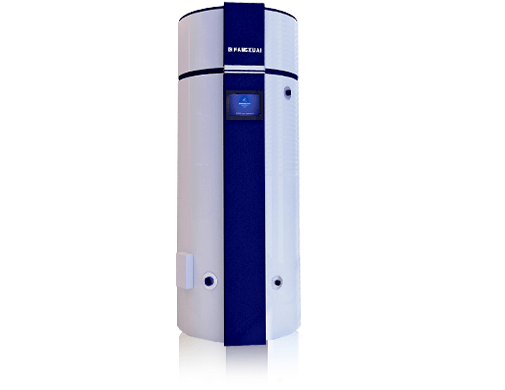 Caldeira de água quente a gás V6
Caldeira de água quente a gás V6 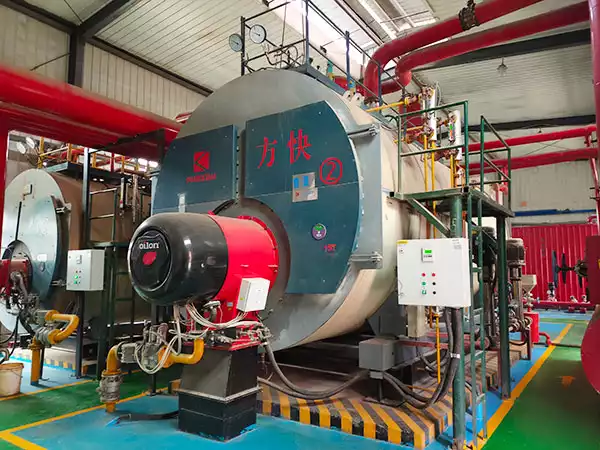 2023 Guia de preços de caldeiras a gás | Comparando custos de caldeiras a gás domésticas
2023 Guia de preços de caldeiras a gás | Comparando custos de caldeiras a gás domésticas 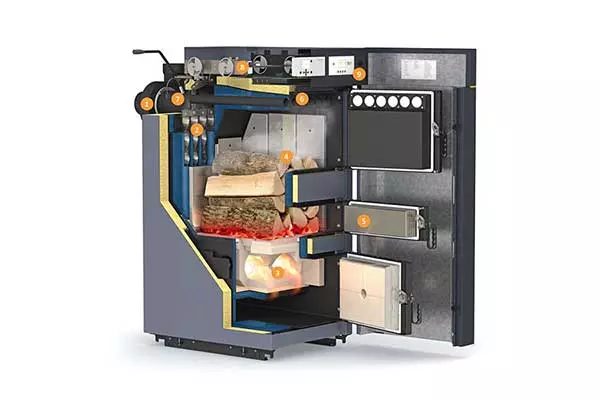 Melhores caldeiras de gaseificação de madeira à venda | guia de compra
Melhores caldeiras de gaseificação de madeira à venda | guia de compra 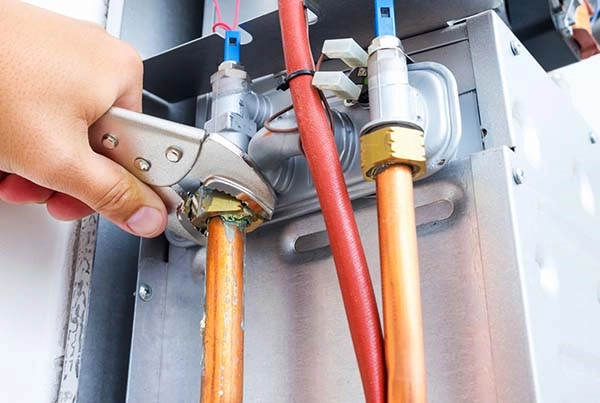 Preços da Caldeira Combi Elétrica | 2023 guia de compra
Preços da Caldeira Combi Elétrica | 2023 guia de compra 